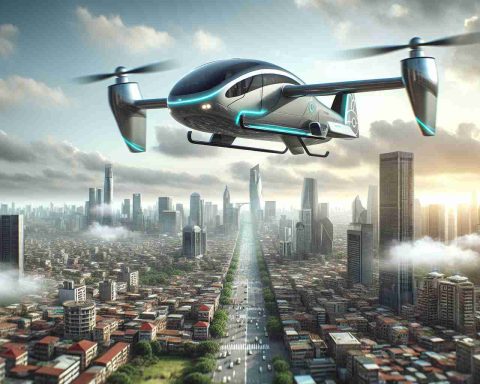- Tesla faces significant brand and market challenges stemming from Elon Musk’s political alliances and government role, leading to widespread protests and vandalism.
- Unmet quarterly sales forecasts reflect a stark consumer backlash, with Tesla delivering 336,681 vehicles from January to March, below expectations.
- Repercussions include a nearly 30% drop in stock value and a projected loss of 80,000 deliveries due to brand damage.
- Analysts, such as J.P. Morgan’s Ryan Brinkman, predict further declines in sales and earnings, revising full-year projections downward.
- Musk’s potential departure from government roles sparks speculation on his future influence, momentarily boosting Tesla’s stock.
- Trump’s tariffs on foreign car parts threaten production costs, challenging Tesla’s predominantly U.S.-based supply chain.
- Tesla’s situation highlights the intricate relationship between corporate leadership, political involvement, and consumer values.
Tesla, once synonymous with innovation and the electric vehicle revolution, finds itself at the crossroads of controversy and consumer sentiment. The electric car giant, led by the enigmatic Elon Musk, faces unprecedented brand damage, surprising even seasoned analysts at J.P. Morgan. Musk, whose political alliances and government role have ignited a firestorm of protests, is watching as the ripple effects of these associations disturb not just market predictions, but the very fabric of Tesla’s brand loyalty.
The storm clouds began gathering when nonviolent protests cropped up across the globe, casting a shadow over Tesla showrooms from Austin to Sydney. Vandalism struck Tesla’s facilities and customer vehicles, mirroring the fervor of protestors angered by Musk’s public support for former President Donald Trump and his controversial role in the federal government as head of the Department of Government Efficiency (DOGE).
The impact was immediate and stark. Despite Tesla’s technological prowess and a lineup of cars once heralded as the future on four wheels, quarterly sales languished far below the anticipated targets. Between January and March, Tesla delivered 336,681 electric vehicles—falling short of the already modest expectations set by skeptical Wall Street forecasters. Analyst Ryan Brinkman from J.P. Morgan described this shortfall as more severe than previously anticipated, signaling a stark consumer backlash.
Gene Munster of Deepwater Asset Management, usually optimistic about Tesla’s prospects, estimated a staggering loss of 80,000 deliveries attributed solely to the brand’s damaged image. As the tremors of Tesla’s disappointing performance spread through the financial world, shares tumbled almost 30% this year, amplifying concerns that political entanglements are more liability than asset for Tesla.
Brinkman’s predictions for the future paint a challenging landscape. Heialed grimly as an imminent risk to delivery and earnings projections, with second-quarter sales forecasts suggesting a decline to 404,000 units, significantly below previous years’ benchmarks. This sentiment is echoed across the analyst community, driving them to revise full-year sales predictions downward by tens of thousands of vehicles.
Meanwhile, Musk finds himself at a personal juncture. With his impending departure from an official government position, market observers momentarily rejoiced as Tesla’s stock saw a slight increase. Speculation mounted regarding his continued influence as a consultant to the White House, casting a shadow of uncertainty over his future involvement.
Amidst this turmoil, Tesla navigates the rough seas of Trump’s newly imposed tariffs on foreign vehicles and parts—a move poised to increase production costs despite the company’s efforts to localize its supply chain. Even as Tesla reports that the majority of its parts are manufactured within the United States, the challenges of sourcing critical components domestically remain formidable.
The ongoing saga of Tesla underlines a profound takeaway: the confluence of corporate leadership and political theater can have unforeseen consequences. The anticipation of technological advancements and automotive brilliance is tested by questions of loyalty, ethics, and alignment with consumer values. As Tesla endeavors to repair its image and stabilize its market presence, the delicate balance between innovation and ideology becomes ever more compelling.
Tesla’s Turmoil: The Impact of Politics on Innovation and Brand Loyalty
In recent years, Tesla, once celebrated as a pioneer in electric vehicles, finds itself navigating turbulent waters marked by political controversies and shifting consumer sentiments. Led by the charismatic and often polarizing Elon Musk, Tesla’s challenges highlight the intricate dance between innovation, brand image, and political affiliations. Here, we explore additional dimensions of this unfolding saga and provide insights into what the future may hold for Tesla and the broader electric vehicle (EV) market.
The Political Controversy
Elon Musk’s political stance and government roles, particularly his support for former President Donald Trump and position in the Department of Government Efficiency (DOGE), have sparked global protests. These nonviolent demonstrations, accompanied by vandalism targeting Tesla properties, underscore the public’s discontent with Musk’s political affiliations. The resulting brand damage has translated into a tangible impact on sales and stock performance.
Sales Decline: Challenges and Forecasts
Despite Tesla’s advanced technology and innovative vehicle lineup, sales have stumbled. Industry analysts, such as Ryan Brinkman from J.P. Morgan, noted a significant shortfall in quarterly sales expectations, exacerbated by Tesla’s tarnished public image. Gene Munster of Deepwater Asset Management estimated a loss of approximately 80,000 deliveries due to this reputational hit. Analysts predict continued struggles, with second-quarter sales potentially dropping to 404,000 units, well below historical benchmarks.
Economic Pressures and Tariffs
Adding to Tesla’s woes, recently imposed tariffs on foreign vehicles and parts by Trump have raised production costs. While Tesla strives to localize its supply chain, sourcing all critical components domestically remains challenging. These tariffs threaten to disrupt Tesla’s pricing and profitability, creating further obstacles in maintaining competitive edge and consumer confidence.
Market and Industry Trends
The broader EV market is experiencing exponential growth, driven by increasing environmental consciousness and government incentives. However, Tesla’s recent struggles reveal the vulnerability of even dominant players to external and internal pressures. Industry forecasts suggest continued market expansion, but Tesla and other manufacturers must navigate regulatory changes, shifting consumer values, and geopolitical tensions.
Balancing Innovation and Brand Loyalty
Tesla’s predicament highlights the delicate interplay between business leadership, innovation, and political alignment. The company’s future success hinges on its ability to realign with consumer values, detach from divisive political engagements, and reestablish its brand as the epitome of forward-thinking automotive excellence.
Pros and Cons Overview
Pros:
– Cutting-edge EV technology and innovation.
– Strong brand recognition and customer loyalty foundation.
– Commitment to sustainable, clean energy solutions.
Cons:
– Vulnerability to political entanglements impacting brand image.
– Increased production costs due to tariffs.
– Complicated supply chain dynamics affecting domestic component sourcing.
Actionable Recommendations for Tesla Enthusiasts
1. Stay Informed: Monitor Tesla’s advancements in technology and sustainability initiatives, separating innovation from political controversies.
2. Evaluate Options: Consider Tesla’s industry-leading features against competitors, keeping in mind any potential changes in pricing or availability.
3. Support Sustainability: Embrace EV technology as part of a broader commitment to environmental stewardship, considering Tesla’s contributions alongside competing manufacturers.
4. Engage Constructively: Participate in consumer advocacy to express values and preferences, influencing corporate strategies towards greater transparency and alignment with societal values.
For more information on Tesla’s vision and latest updates, visit their official Tesla website.
By examining the interplay between politics, technology, and market dynamics, stakeholders can gain a nuanced understanding of Tesla’s challenges and opportunities, enabling informed decisions in an ever-evolving industry.










